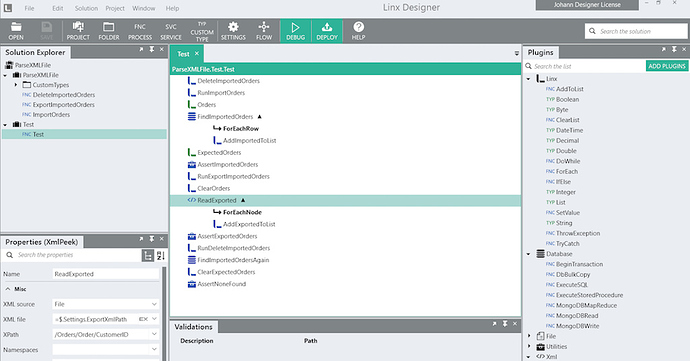Building and maintaining back-end applications are complex and time consuming. You need to select the right tools, write boiler-plate code, wrestle with the latest framework, try to understand other people’s code, figure out new APIs, etc. Deploying and hosting brings its own questions: How do we deploy? Where do we deploy to? How do we monitor it? What about versioning, testing, security, etc?
Linx enables the rapid development and deployment of back-end applications like APIs, integrations and automations. Developers design and debug solutions in a familiar procedural style using a drag and drop interface with access to 1000s of ready made functions. Solutions are deployed with one click to servers running in the cloud or on-premise.
Typical use cases
- Automation of business processes
- Integration of system and data
- Build and host APIs
Why our customers use Linx
- Speed of build compared to coding
- Ease of maintenance compared to coding
- Flexibility compared to specialized products for
- Integration
- ETL
- BPM
- Automation by non-developers
Unique features
All-Purpose - Linx is an abstraction of programming itself and not domain, process or tooling specific. This means it can be used for any backend application in any domain with no limitations on connections to other tools and services.
Programming Paradigm - Linx is not constrained by a domain or use-case driven paradigm and is often used in conjunction with other low-code tools to provide the API or integration services that those tools are not designed for. It also allows for the easy implementation of complex functionality.
Developer Experience - Typical use is similar to working in any other traditional IDEs. Users can build, debug and test functionality using common operations for functions, types and services.
Technology agnostic - Linx works with any tool or service (SaaS, systems, apps and legacy), database (SQL, Oracle, OLE DB, ODBC, Postgres Mongo) and files (XML, Json, text, csv, PDF)
Hosting - 1-click deployment to on-premise or cloud. Security, configuration, logging & metrics are standard.

